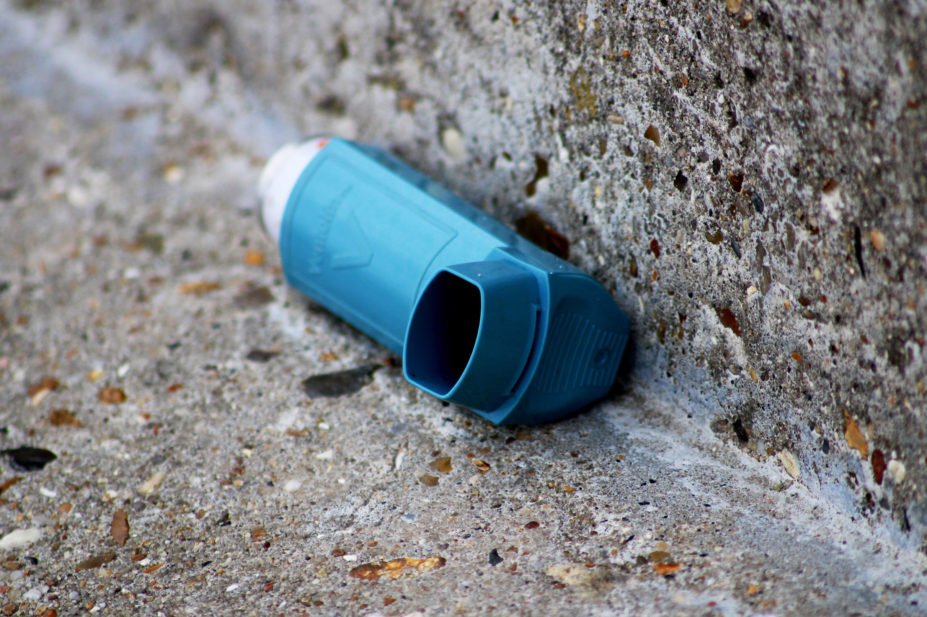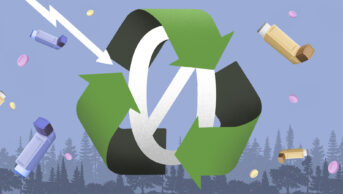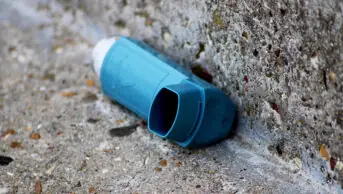
Shutterstock.com
There are currently no plans for an NHS England-led national inhaler recycling scheme, The Pharmaceutical Journal can reveal.
This is despite the set up of an NHS-funded national working group in 2019 with the aim of reducing the climate change impact of asthma inhalers.
Responding to a freedom of information request regarding its plans to establish a national inhaler recycling scheme, NHS England and NHS Improvement (NHE&I) confirmed that it “did not currently have any plans” for such a scheme.
In its written response, sent on 18 August 2021, NHE&I said: “Nationally, the recycling of inhalers is enabled through the general contractual obligation for community pharmacies to accept returned medicine waste (including inhalers).
“This ensures medicine waste is disposed of in the safest and most environmentally friendly way.”
NHSE&I added that it was aware of a range of local and manufacturer-led inhaler disposal schemes which it “encourage[d] use of across the NHS”.
In the report, ‘Delivering a ‘net zero’ National Health Service‘, published in October 2020, NHSE&I laid out ambitions to become the world’s first “net zero” national health service.
The report set out aims to reduce the NHS’s carbon footprint to net zero by 2040, with an 80% reduction by 2028–2032.
It highlighted that medicines accounted for 25% of emissions within the NHS and a small number of medicines account for a large portion of the emissions; anaesthetic gases account for 2% of emissions and inhalers account for 3% of emissions.
The report also stated that the International Pharmaceutical Aerosol Consortium (IPAC), which focuses on inhaled products and associated environmental policy issues, was coordinating a consortium of large pharmaceutical companies to develop a programme encouraging patients to return inhaler devices to pharmacies for “green disposal”.
Carol Stonham, executive chair of the Primary Care Respiratory Society and lead of its Greener Respiratory Healthcare work, said: “Patients are keen to recycle used inhalers but schemes are limited to very small areas currently. It is vital that used inhalers are diverted from landfill to protect the environment from the gases contained within pressurised metered dose inhalers, and the plastics from all inhalers.
“Access to a widespread recycling scheme would be ideal, although safe disposal — incineration at a high temperature and recovering the energy produced — is currently an alternative.”
“The potential added advantage of inhaler return is that working with community pharmacists we could identify if the inhaler is indeed empty, minimising waste; optimise the patient’s inhaler technique; and communicate information on symptom control back to the patient’s practice,” she added.
In September 2020, the Complete the Cycle inhaler recycling scheme, run by the pharmaceutical firm GSK, closed after nine years.
In total, the scheme recycled and recovered more than 2 million inhalers, but a spokesperson for GSK said that, as the first national scheme of its kind, it could not reach the necessary scale as a “bespoke, standalone scheme”.
In February 2021, pharmaceutical company Chiesi launched the UK’s first postal inhaler recycling scheme in Leicestershire.
The ‘Take AIR’ scheme, which aims to dispose and recycle empty and unwanted inhalers of any brand or type, will run for 12 months, at which point it will be assessed for effectiveness and how it can best be rolled out in other areas.
However, as of 5 July 2021, only 141 out of the 227community pharmacies invited to participate had signed up to take part.
READ MORE: PJ view: Everyone must do more on the climate emergency — and that includes us


